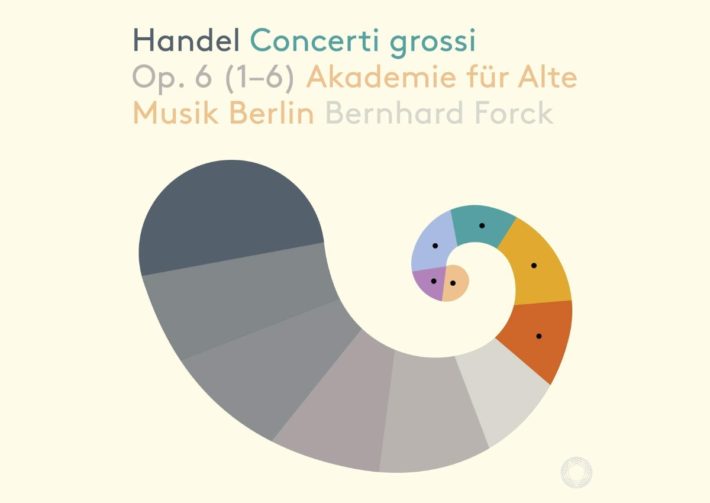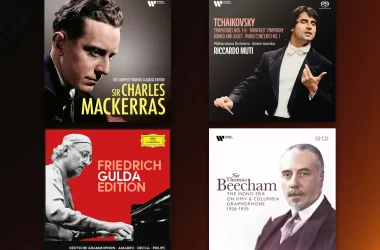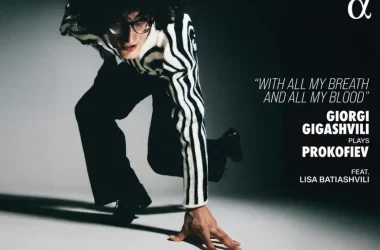This is not the first attempt by the ”Akademie für Alte Musik Berlin” at Handel, with oratorios, solo arias, opera accompaniment and the famous the “Water Music” under their belt, all for Harmonia Mundi. This is the first of what the group’s new label, Pentatone, says will be a trio of releases. This first album presents the Op. 6 Concerti Grossi No. 1-6, with the second group of 6 to follow along with an album of the earlier Concerti Grossi, Op. 3.

These Concerti Grossi shows Handel at his most creative, employing styles and compositional technique to be found in compositions from all across Europe of the time. His direct influence was Corelli, with his own Op. 6 Concerti Grossi, which proved very popular with the public. But Corelli, with all of his inventiveness and more impressive strings writing, stays in his own element, while Handel seems to be exploring on more distant horizons. Handel’s Concerti, published as a subscription and also intended as interval music for large oratorios and operas, need further theatrical ability. And so, even if less plainly virtuosic than Corelli’s Concerti, they can demand on occasion a more public display of orchestral force.
This atmosphere of exploration and discovery is well incorporated in this performance. From the first Concerto’s fist movement, the sound picture is fully displayed to the listener – The tutti with the 20 plus players, two violin soloists (the primary is the group’s concertmaster, Bernhard Forck) and a continuo group which consists of Harpsichord, lute, chamber organ and bass, with doubling bassoon on 4 of the concertos. The continuo is incorporated wisely throughout the album, players added or removed based on each movement’s character. Each continuo player adds his ornamentation masterfully, giving added value without attracting too much attention. Unlike Andrew Manze’s version of the full Op. 6 set, Forck and the Berliners incorporate oboes in four of the concertos, where evidence of such addition exist (Handel reportedly added them for a theatre performance but did not include them in the first subscription addition). They give additional strength to the music line and, as in the third movement of the third Concerto, take a solo role as well. Fugal movements are presented as cheeky surprises, as in the First Concerto’s fourth movement, where even the final bars are presented with humorous touches.
Throughout, Forck and Dörte Wetzel, who takes the second violin solo part, are assured and attractive performers of the violin solos, their strength not presented only in the fast movements but even more impressively in the slow ones. Indeed, these movements are some of the most moving in the entire album. Take for example the Fifth Concerto (tracks 19-24), where the two soloists are changing styles from the Italianate presto of the third movement to the heart-warming Largo of the fourth, with continuo and string orchestra giving rich support.

This new version can comfortably be recommended as a new standard for this repertoire, to stand alongside long-time favorites; Andrew Manze is the closest to the original published score, forgoing woodwind and keeping the orchestration in the same proportions as the Corelli Concerti Grossi. His version is leaning more to the violin solos and sounds more intimate. Il Giardino Armonico under Giovanni Antonini are a more dramatic band, eager to show the contrasts and striking gestures already fully realized inside the score. Some will be persuaded by the sheer energy, some will look for greater refinement. The long-time favorite Christopher Hogwood with the “Handel And Haydn Society” starts to show its age, with better ensembles coming into the catalog over the years, yet Trevor Pinnock with The English Concert still sound terrific, less outwardly but completely involved with the music. This new set is a wonderful addition, superbly recorded and a promising start to the rest of the Concerti series.
Handel – Concerti Grossi Op. 6, No. 1-6
Akademie für Alte Musik Berlin
Bernhard Forck – Violin, Conductor
Pentatone, hybrid SACD PTC 5186737




















